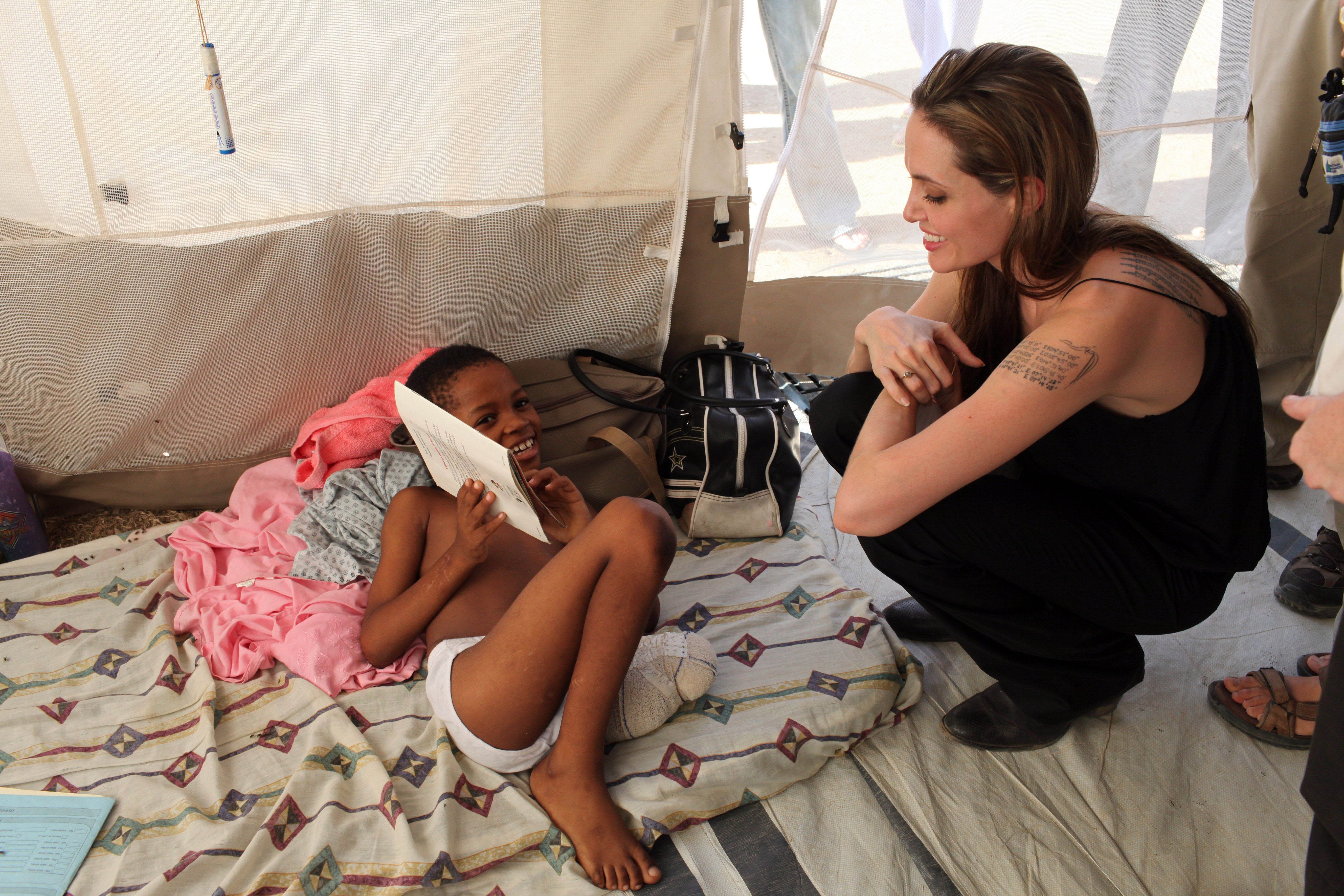Among Haiti's displaced, needle and thread provide work and community
Among Haiti's displaced, needle and thread provide work and community

FONDS-VERRETTES, Haiti, March 24 (UNHCR) - More than two months after a powerful earthquake levelled large areas of Haiti, at least 1.9 million survivors remain displaced. Some 1.3 million men, women and children are living in settlements and camps in and around the capital, Port-au-Prince. Less visible, but equally in need, are the more than 600,000 people who have fled the earthquake zone to outlying provinces.
In Fonds-Verrettes, an isolated rural community nestled in the mountains on Haiti's southern border with the Dominican Republic, some 8,000 earthquake survivors, mostly women and children, have sought safety. The local population has welcomed extended family, friends and acquaintances arriving from the capital, despite the hardships created by the swelling of their households.
Residents of Fonds-Verrettes suffered persistent poverty even before the earthquake; many families could not afford to send their children to school. Yet what little they have has been shared without hesitation.
With no employment opportunities and few outlets for socializing that could help heal the psychological wounds of the displaced, UNHCR has inaugurated a women's cooperative sewing project which aims to provide displaced women and their hosts a means of earning an income while strengthening mutual support between them.
The UN refugee agency delivered eight sewing machines and a cash grant for other necessary materials to the Oganizasyon Fanm Solidè Fonvèrèt, a women's collective in Fonds-Verrettes. The project will enable the group, with a membership of over 140 local women, to train dozens of displaced women to become seamstresses. The collective will sell its goods to an established network of traders in surrounding communities.
The sewing cooperative provides a safe and welcoming environment in which displaced women can socialize and recover from the effects of the earthquake. According to Olga Jean Polynice, the local coordinator of the project, "the initiative is not just about giving the women a chance to earn some money. It's also about creating a community that brings together local and displaced women and allows them to support each other through the trauma and loss they have suffered."
Twenty-four-year-old Marie-Justine Romelus found safety with relatives in Fonds-Verrettes after her home in Port-au-Prince was destroyed by the earthquake. Though she doesn't know how to sew, she embraces the opportunity to learn that the cooperative offers.
Her new neighbour, Sonia Chery, who was also displaced from Port-au-Prince, will also participate. "She is an experienced dressmaker and will be able to practise her trade again," said Marie-Justine. "She'll help women like me to learn a new skill and help support myself."
The sewing project complements the distribution of relief items such as blankets, soap, flashlights, cooking utensils and water buckets in rural communities by UNHCR in partnership with municipal and local authorities that have benefitted more than 20,000 displaced and host families in Haiti's border zone.
"Most of the attention has been on getting life-saving aid into Port-au-Prince. But in the countryside, local resources are severely overstretched," said UNHCR team leader Gonzalo Vargas Llosa. "If rural communities are not helped to cope with the tens of thousands of arrivals, many of the displaced will have to return to Port-au-Prince. This will further strain the camps and settlements, putting more women and children at risk."
Depending on donor support, UNHCR plans to implement a more ambitious programme of projects in the provinces to benefit those displaced by the earthquake and the rural communities hosting them.
By Rosalie Fournier
In Fonds-Verrettes, Haiti






